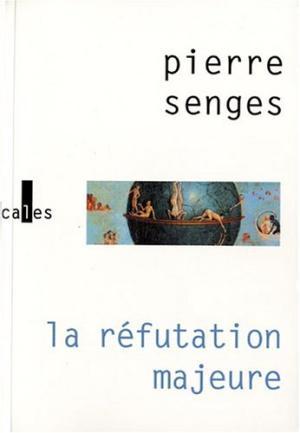What do you think?
Rate this book


240 pages, Paperback
First published August 20, 2004
The fake does not have the qualities of the true, it only appears to have them; yet, at the risk of pleading against mine own cause, I must admit that the efforts used by counterfeiters often merit`far greater attention [...] and admiration than their authentic models, which take no further trouble than to simply exist: resting on an embroidered cushion until the end of recorded time.This is a difficult book to describe: it is a book of fictional invention masquerading as historical artifact, further masquerading as scholarly treatise. It never flinches, it has not one single tell that it is anything but what it appears to be: a 16th century work, of questionable authorship, that methodically and systemically argues against the existence of the "New World".
My omnipotent, tenacious, and presumptive prince, understand this, before going any further: the invention in certain back rooms of a new world that I wish to locate more precisely (a world where new trees and immeasurable grasses grow, populated by ducks with pig's heads and imperfect sirens) would mean above all else designating the world we live in as the old world. Thus do these newly emerged lands, plotted on this side of the world, in the workshops of Isabella or the Bourguignons, aspire to render our continent odious, and ultimately unbearable, populated as it is since time immemorial by beggars, by thieves, administered by them in company with other managers and tenants who are robbers, horse-traders, pimps, scrape-pennies, fake priests who swore devotion to Madeleine after having seen one or the other of her miraculous breasts in a dream, judges deaf to misery, merchants meanly measuring their phials, school headmasters, cardinals burned at the Gates of Hell, renouncing their search for holiness, opting instead for the prelacy: in short, the whole litany of miscreants (a litany known to us all, which grows the more familiar with every passing year). There would be no other reason to postulate a new world than to render ours contemptible by comparison, and to incite us to flee from it, like a bunch of capuchin monkeys driven to leap off a burning raft, thereby drowning themselves, never to be heard of ever again, neither the monkeys, nor the rotting planks. (After the departure of the last aspirants, embarked for the other world, all this country will have left will be its terminal denizens, those who hold fast, inspired by the avarice of the tick, and stand their ground: not always the best companions, but for sure the most sedentary. In effect, the thieves leave, return, while the more timorous remain behind: the collectors of spoils have a nice cruise, the receivers hold down the fort.) [80–1]